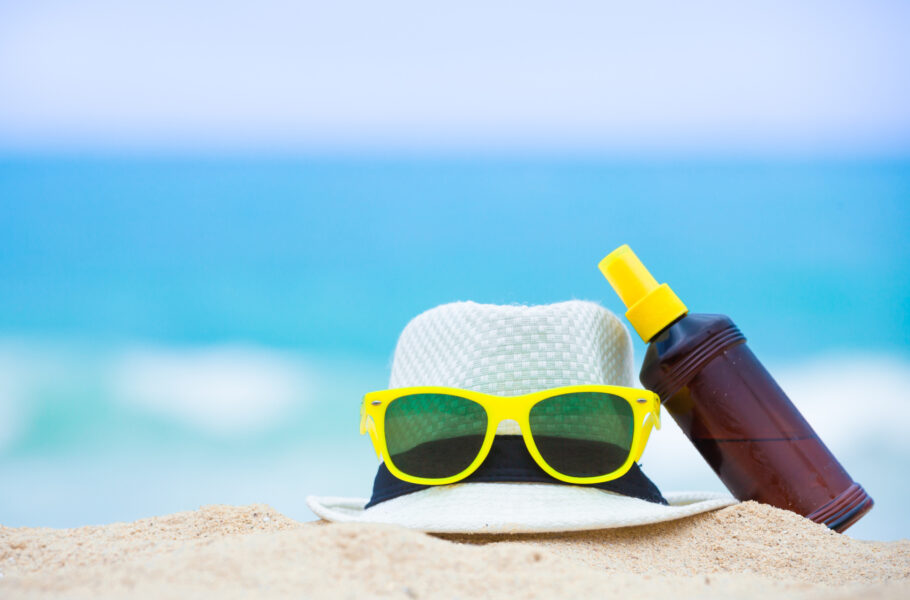
All summer, we talk about applying sun screen to protect our skin, and most summer protection articles in the media seem to revolve around protecting your skin from the sun’s damaging ultraviolet (UV) A and B rays, but hardly anyone talks about protecting your eyes during those harsh summer months. The truth is the sand that flies in these months and that summer glare in Qatar can be blinding (harsh) resulting in the damage of your eyes, especially if you are not protecting them properly.
This summer, Hamad Medical Corporation (HMC) is putting stress on not only protecting your skin from too much UV exposure, it’s also emphasizing on protecting your eyes from sun damage by wearing sun glasses when outside, or you could develop eye-related complications that include
Direct exposure to air conditioners, especially those is vehicles, during the summer months may also irritate or dry your eyes.

According to HMC, though eye protection in the summer months is necessary for all individuals, those that must pay special attention to it are
Always wear sun glasses when out in the sun that block out 100% of the sun’s damaging UVA and UVB rays. Do not wear sunglasses that have blue tinting because they emit UV light, which is not good because that is exactly what you are trying to prevent and block. Use sunglasses with brown or darker tints for effective protection against the sun.

Even with sun glasses you may not be completely protecting your eyes from sun damage. Why not add a hat that has a 3-inch (at least) broad brim to maximize your protection from the sun, and feel the difference.

If sand gets inside your eye, never rub the eyes as the minute sand particles can scratch or damage your cornea; always flush or wash the affected eye with water and blink to rid your eye of that irritating sand. However, if you still feel discomfort, seek help from a medical examiner.

While swimming, always wear swimming goggles to protect your eyes from the chlorine in the water used to protect you from germs that may be in the pool, as it may cause redness, irritation or blurring of the eyes.

Avoid using sun screens that contain para-aminobenzoic acid (PABA) - often used in sun screen, cosmetics and a range of beauty products to aid in the reflection of the sun’s UV rays - as this chemical can cause eye irritation and/or soreness, skin allergies/abnormalities or liver damage. Check the label and opt for a sun screen that does not contain PABA.

After prolonged exposure to the sun, even after you have been wearing sunglasses and, perhaps, a hat or cap, try to take a break, close your eyes and rest for a while. This will refresh your eyes and help to prevent dryness.

If sunlight that reflects off desert sand, water, snow, ice or other surfaces that are very reflective gets into your eyes, you can actually get a burn on the outer surface of your eyes from the UV rays. This is called Photokeratitis and may cause redness, pain, blurred vision and also temporary loss of vision (medical attention is necessary in this case). To prevent the condition, always wear 100% UV protected sunglasses and/or a hat.

It is very important to get enough sleep. Sleep deprivation means tired eyes and tired eyes often become dry. When your eyes are dry you tend to rub them more and this may cause irritation and other problems especially if your hands come into contact with dirty surfaces and are not washed regularly. Getting adequate sleep will reduce your risk of dry eyes and will enable you to focus on your tasks more effectively.

If, at times, your eyes still feel dry, irritated or sore, you can use ‘artificial tears’ that are available over-the-counter to soothe your eyes and reduce dryness. However, if systems persist, seek proper and immediate medical help.

Children spend a lot of time outdoors playing and are exposed to the sun a lot more than the average adult, so it is very important to keep them protected from the sun and start when they are still young. Whenever they are out in the sun, they should be fully protected with sun screen for the skin and sunglasses and hat for the eyes because the lenses of children’s eyes are not able to filter out UV rays as well as adults and this makes them more susceptible to eye damage.

Since the sun’s rays are at their strongest around mid-day to early afternoon, at higher altitudes, and when reflected off desert sand, water, ice or snow - if possible avoid going out at these times, but if necessary, please take the precautions given above and protect your eyes from the harsh summer sun.

How much time do you spend outdoors on an average summer day in Qatar? Do you protect your eyes from the sun’s damaging rays when outdoors? Do you wear sunglasses? What about a hat or cap? Sunscreen? Do you also keep your children protected? Do let us know all about your sun protection routine in our Comments section. Like and share the article – it keeps us going!
Follow us on our social media channels:
![]() @ILQlive
@ILQlive
![]() @ILQlive
@ILQlive
![]() @ILoveQtr
@ILoveQtr
![]() ILoveQatar
ILoveQatar

You have successfully registered your account!
Please confirm your e-mail address by clicking on the URL sent to you.The e-mail usually arrives in 5-10 minutes.
How ajeeb was that!? Thanks for contributing to our community! Your post will appear after we take a quick look!